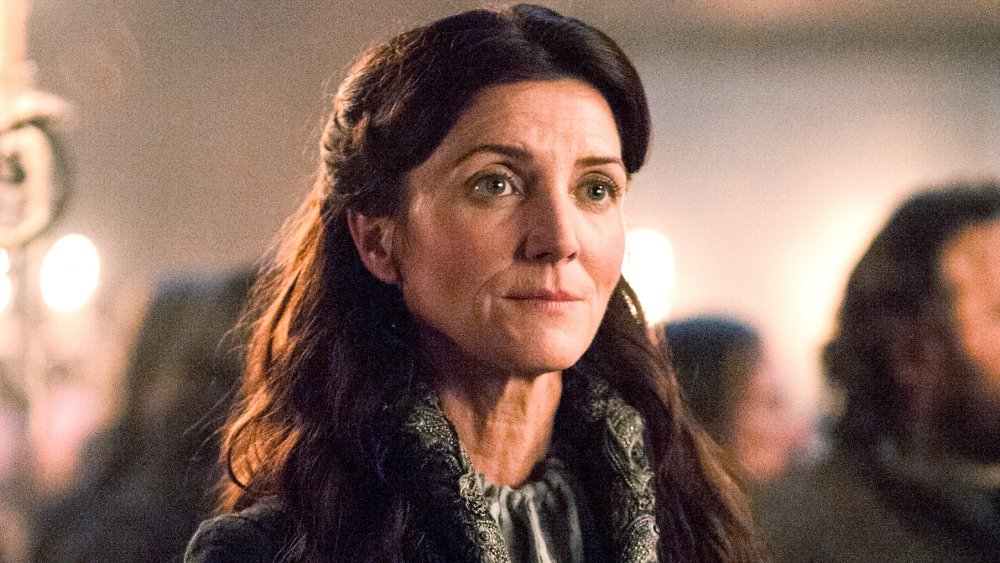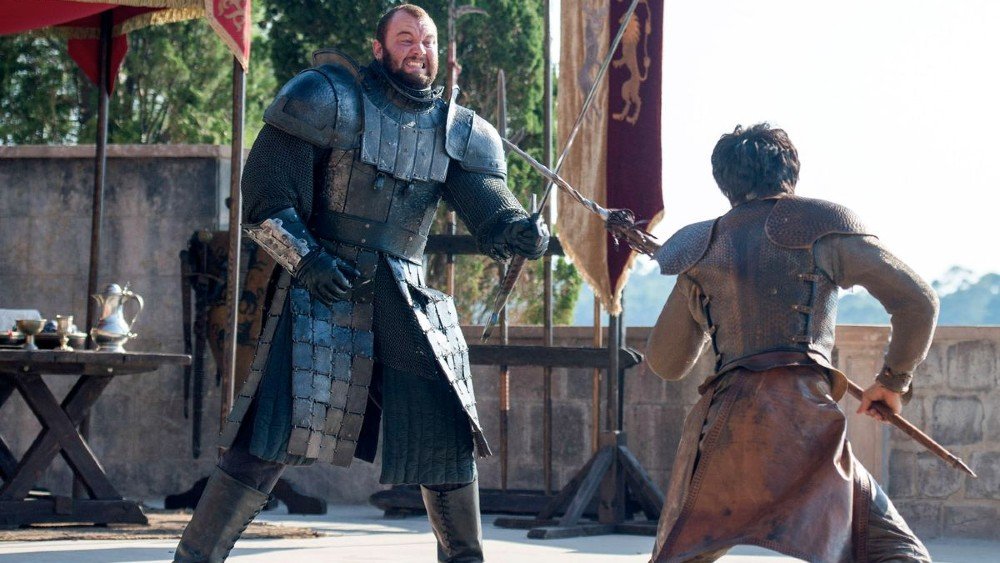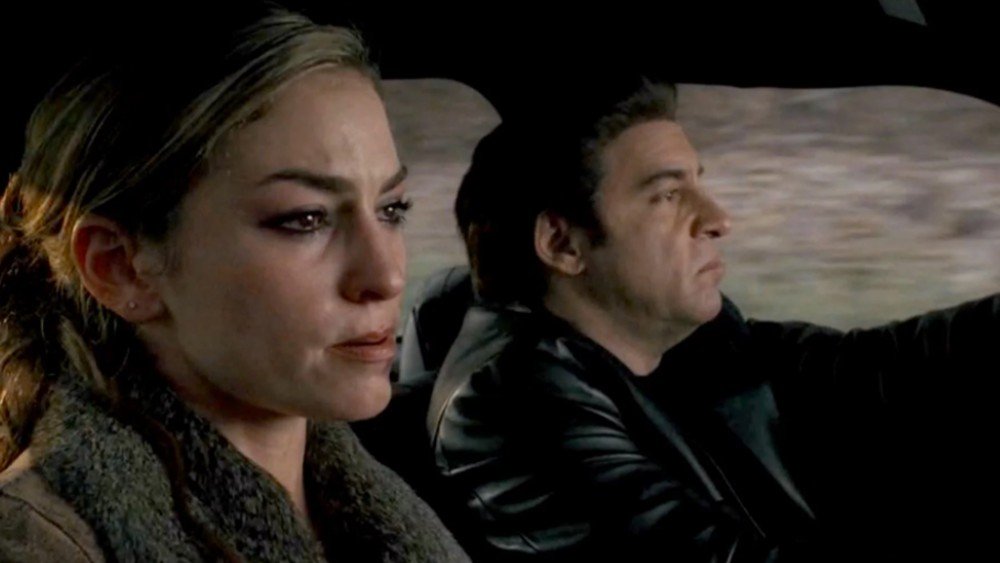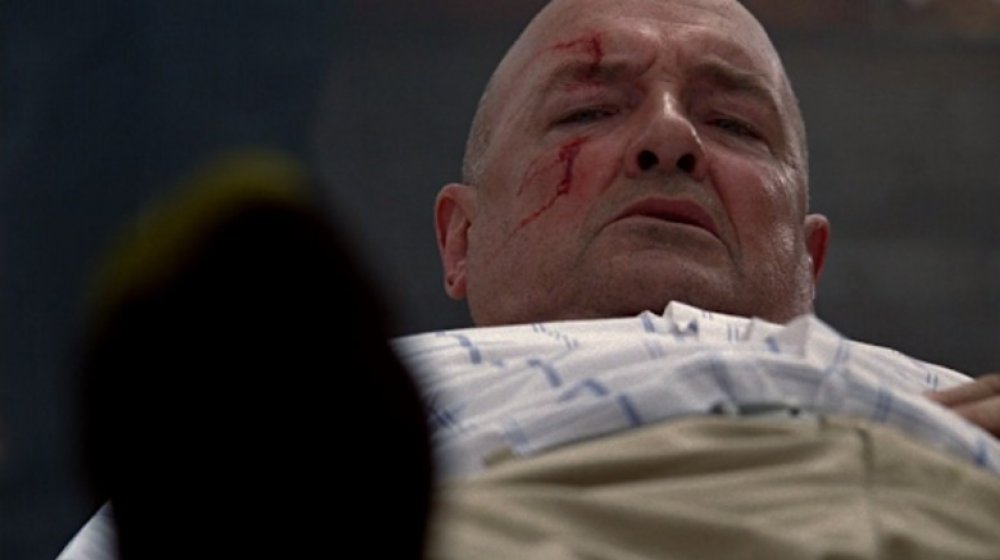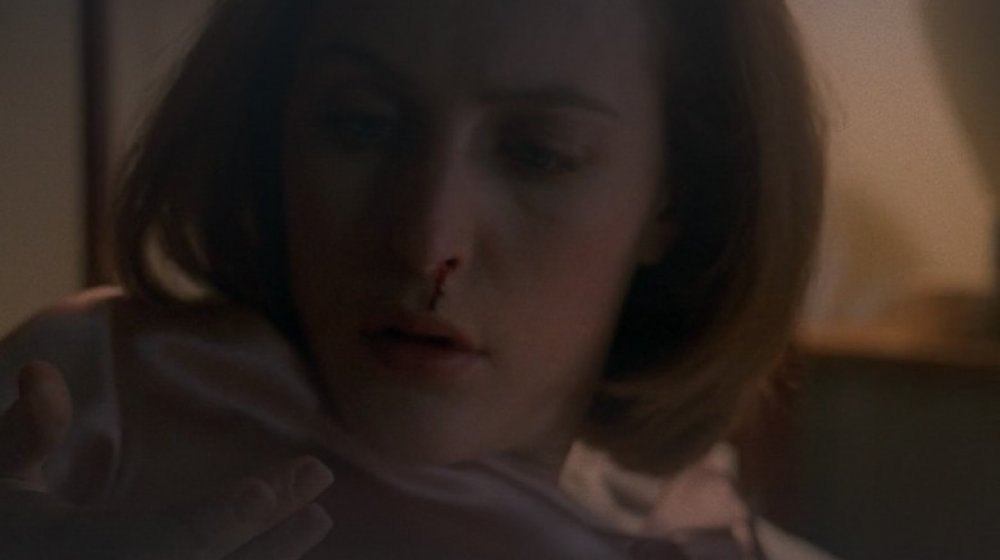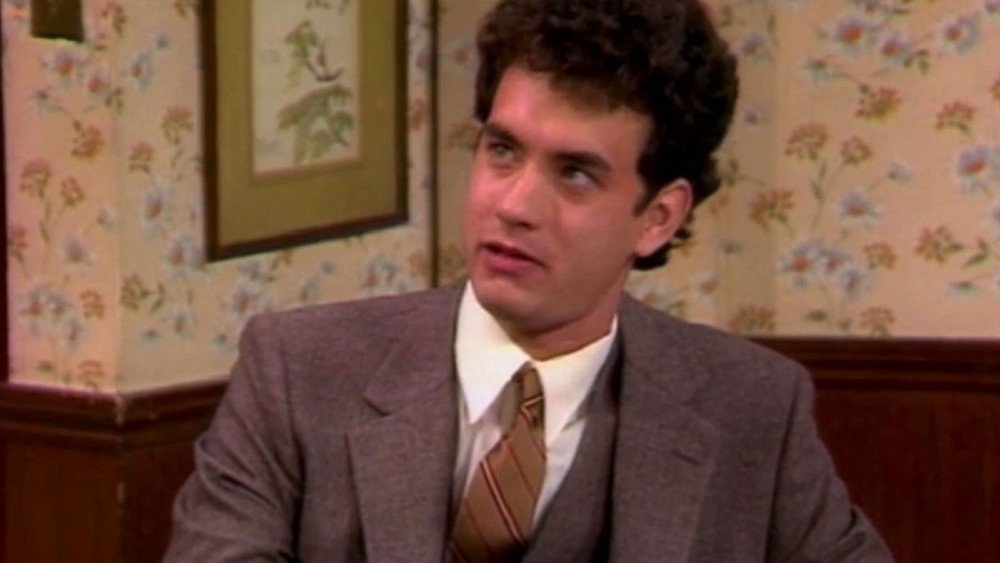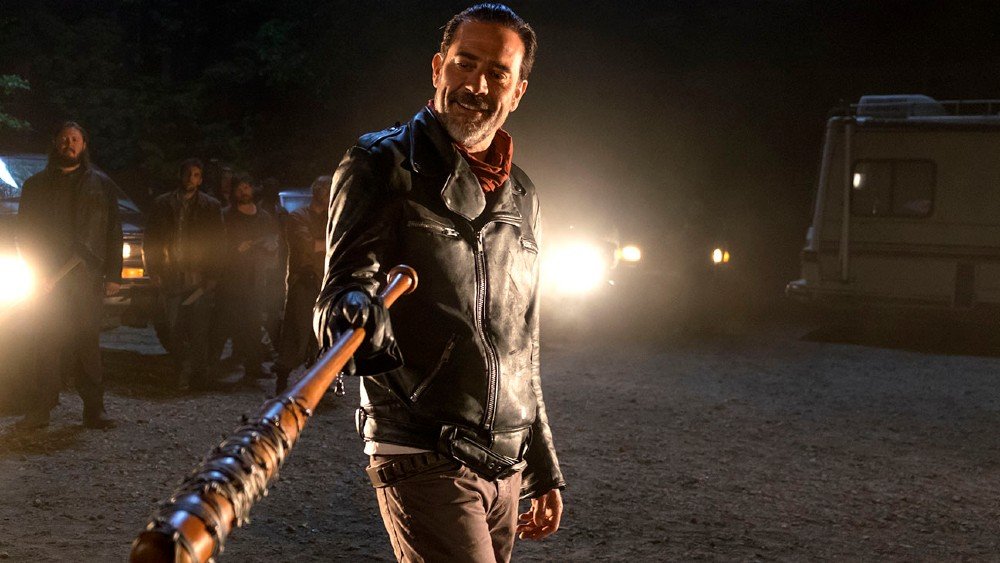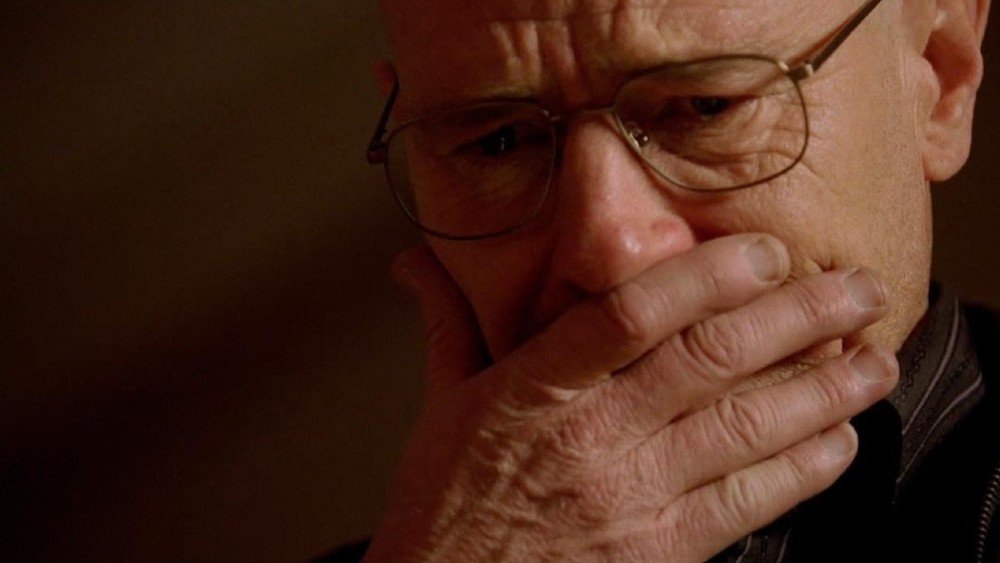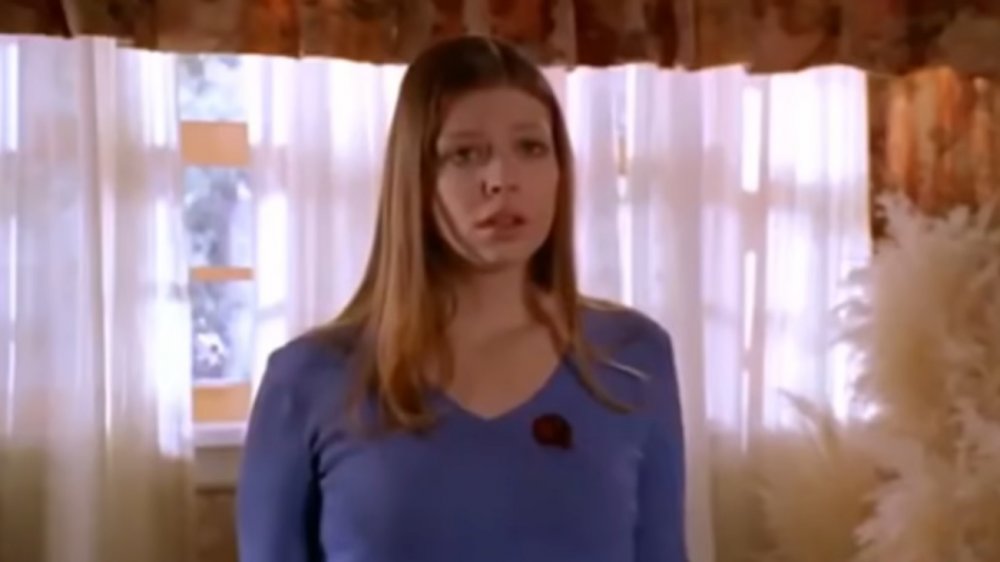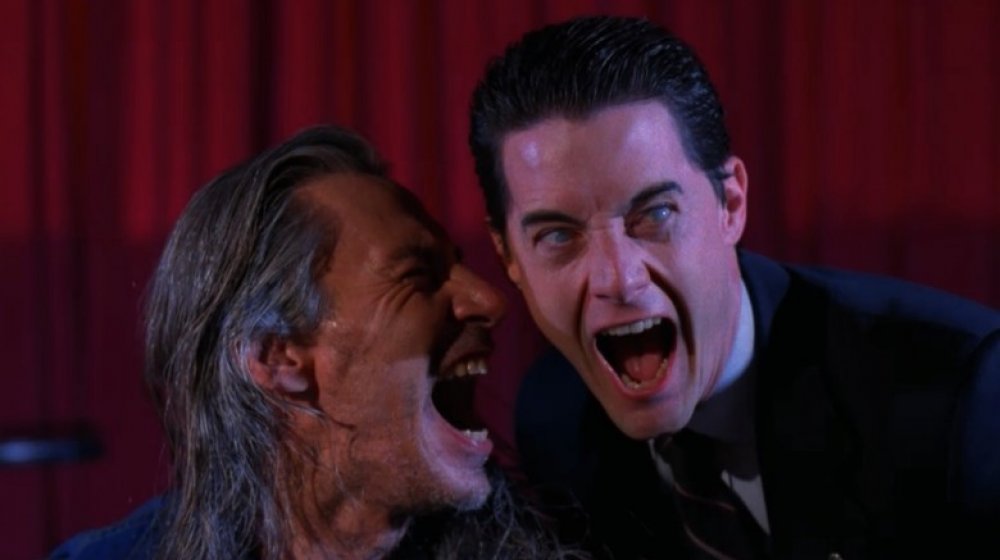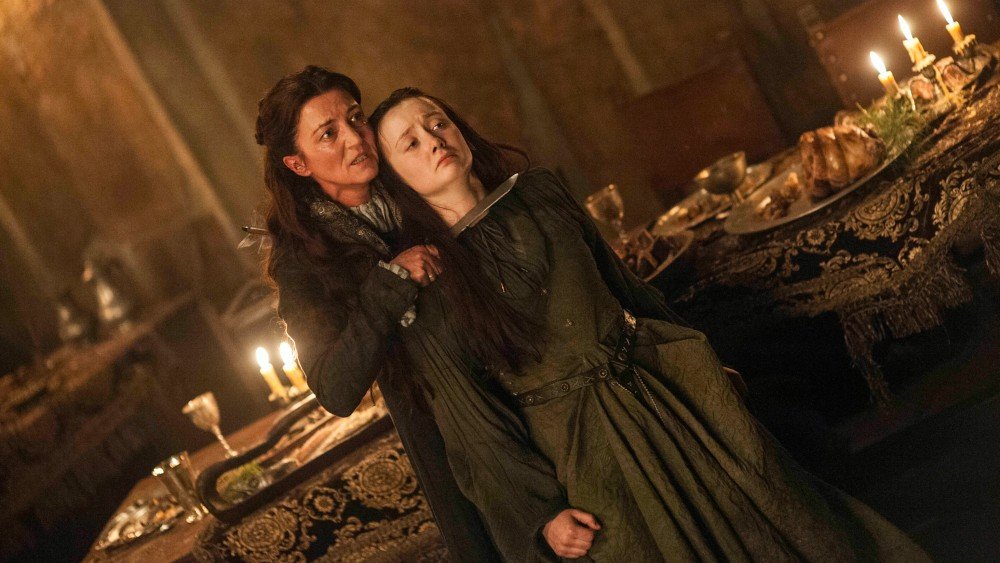TV Moments That Made Fans Gasp
One of the reasons fictional TV shows are so popular is that they give viewers a sense of familiarity and stability. The longer a successful series stretches on, the more the characters feel like family. No matter what chaos may be going on in our real lives, we can rest assured the next episode of our favorite sitcom will include all the same character quirks, catchphrases, and recurring jokes as every other episode.
Maybe that's why when something shocks us on a TV show, it can rock us like few other forms of entertainment can. We're talking about big things happening to characters we've known for years. For example, you may watch a horror movie with the expectation that at least half the characters won't survive, but those are characters you only know for an hour and a half or so. It's quite another thing when a beloved character on a horror TV show like Buffy the Vampire Slayer or The Walking Dead — someone you've been following for years — is brutally and abruptly taken from you.
Of course, it's not just death that can leave us surprised. Sometimes, it's a dramatic cliffhanger, the introduction of a cool new character, or even something miraculous. Whether they were horrifying, wonderful, or just plain shocking, here are TV moments that made fans gasp.
(Be warned — the following includes spoilers for multiple TV series.)
The Mountain/Viper duel on Game of Thrones didn't go the ways fans hoped
When it comes to shocking fans in often bloody and utterly soul-crushing ways, few series can top HBO's Game of Thrones. One perfect example comes toward the end of Thrones' fourth season with "The Mountain and the Viper."
The title refers to a duel that doesn't end the way any viewers want it to end. Wrongly accused of the murder of his nephew, Tyrion Lannister (Peter Dinklage) picks Oberyn Martell (Pedro Pascal) as his champion in trial by combat. Oberyn, aka the Viper, volunteers for the chance to get revenge on Gregor Clegane (Hafþór Júlíus Björnsson), aka the Mountain, for the murder of his sister and her children. In spite of Clegane's size and strength, the charismatic Oberyn dominates Clegane for most of the duel, and he eventually pins him to the floor with his spear. All the while, he repeats his accusations towards Clegane, demanding the giant confess to them.
It's ultimately his rage that proves Oberyn's undoing. In spite of his chance to finish off Clegane, Oberyn paces around the fallen murderer, demanding he confess. With everyone believing him beaten, Clegane sweeps Oberyn's feet out from under him and finally gives Oberyn the confession he wants. Unfortunately for Oberyn, that confession comes with one of the goriest scenes in the series — with the Mountain winning the duel by crushing the Viper's head with his bare hands.
On The Sopranos, Adriana's final ride was upsetting
By the end of HBO's mob drama The Sopranos, many of its most memorable characters are swimming with the proverbial fishes ... or worse. Still, even in a show known for its depiction of mob hits, the murder of Adriana (Drea de Matteo) in season five's "Long Term Parking" is one of the toughest to watch.
Part of what makes Adriana's fate so heartbreaking is the way the episode plays with our expectations. We're already threatened with Adriana's murder earlier in the show when she finally admits to her fiancee, Christopher (Michael Imperioli), that the FBI coerced her into becoming an informant. Christopher's reaction, predictably, is panic and rage. He punches Adriana and chokes her, screaming at her as she begins to suffocate. He brings her right to the brink of death and finally lets her go.
When Tony (James Gandolfini) calls Adriana later to tell her Christopher has attempted suicide, it's not tough to believe. The episode makes it clear his thoughts on joining Adriana in Witness Protection aren't very optimistic, and in spite of his anger toward her, it seems unthinkable that Christopher would turn her in to be killed by the mob. We want to believe Silvio (Steven Van Zandt) is really driving her to see her fiancee, but once he pulls into the woods rather than a hospital parking lot, we know Adriana's done for. Silvio drags her out of the car, hissing slurs at her, and mercifully, the shot takes place off camera.
Fans of Lost were shocked to learn the truth about Locke
John Locke is one of the most enigmatic characters on Lost, and the first time we learn anything significant about him is in season one's "Walkabout." The other crash survivors either see him as a man's man, or — after he reveals his box of hunting knives — they're straight-up scared of him. Either way, it's clear he's one of the few survivors prepared for their predicament. But most of the flashback scenes in "Walkabout" present us with a very different guy. They introduce us to a Locke who's a low-level office worker. He spends his lunches playing war games and his evenings on the phone with a sex worker he thinks he has a relationship with. He dreams of an Australian walkabout tour, which he believes is his destiny.
In one of the final flashbacks, Locke is in Australia arguing with the tour guide across a desk. The guide refuses to let Locke go on the tour, and Locke is furious. As the guide leaves his desk, we see Locke is in a wheelchair. Finally, we're brought back to the moment Locke awoke after the plane crash, and in the middle of all the death and horror, we watch as Locke experiences a miracle — he can walk.
For many fans, the quality of Lost eventually dipped far, but its first season is phenomenal, and the end of "Walkabout" is one of its most powerful, uplifting moments.
On The X-Files, Scully's cancer diagnosis was surprising and bizarre
The second half of The X-Files' fourth season included a subplot in which Agent Dana Scully (Gillian Anderson) is diagnosed with cancer. Rather than something perfectly mundane like Scully having a bad trip to the doctor's office, the show's creators decided to use The X-Files' premise to facilitate the diagnosis.
In "Leonard Betts," the titular villain is an ambulance driver who seems to be unkillable. Betts (Paul McCrane) impossibly survives losing his head during a car accident and somehow grows a new one. Agent Mulder (David Duchovny) eventually concludes that Betts survives and heals himself through the consumption of cancerous tumors, and as such, he can somehow sense when someone has cancer. We see proof in a scene when Betts approaches a man in a parking lot and — just before murdering him off-camera — says, "I'm sorry, but you've got something I need."
Toward the end of the episode, after Scully accompanies an ambulance carrying Betts' mother, Betts attacks Scully in the ambulance and once again says, "I'm sorry, but you've got something I need." Scully has no time to consider his words as she's too busy fighting him off. She eventually kills him with the ambulance's defibrillators. The episode ends with Scully waking up in the middle of the night with a coughing fit. After turning on the light, she notices blood on her sheets and then learns its dripping out of her nose.
On Family Ties, Tom Hanks' character was a violent drunk
It was just about the time Tom Hanks was making the jump from sitcom star to movie star that he landed a recurring role on Family Ties as Uncle Ned, a man the teenage Alex (Michael J. Fox) idolizes in spite of learning some difficult truths about him.
When we first meet him in season one in the two-part "The Fugitive," Ned eventually turns himself in to the FBI after stealing millions of dollars from his former employer. But the second season would show us a much darker side to Uncle Ned. In "Say Uncle," Ned shows up looking to put his life back together. Steven (Michael Gross) tries to help by getting him a new job, but it soon becomes clear that it isn't just Ned's criminal past that's dogging him — he's an alcoholic unwilling to face his problem. When the family confronts him and Ned is overcome with self-pity, Alex shows Ned newspaper clippings of the uncle's former business exploits that Alex keeps in his wallet for inspiration. Unimpressed, Ned begins throwing the clippings in the fireplace. Alex tries to stop him, and Ned abruptly attacks Alex, knocking him to the floor.
In more contemporary times, Uncle Ned's assault on Alex wouldn't have made much of a ripple. But in 1984, when sitcoms rarely did anything that wasn't meant for the laugh track, a scene in which a drunk Tom Hanks attacks a young Michael J. Fox left plenty of audiences speechless.
The Mandalorian premiere shocked the world with cuteness
As the first ongoing, live-action Star Wars television series, as well as the jewel in Disney+'s crown upon the streaming service's release, anticipation for The Mandalorian was high even though few could've predicted how its premiere episode would end or that it would reveal a character that would arguably become even more popular than the Mandalorian (Pedro Pascal) himself — the Child, better known as Baby Yoda.
When the Client (Werner Herzog) hires Mando to bring the Child back to him, there's no indication the target is a baby. Our only clues as to the target's identity is that the series is clearly taking place after the events of 1983's Return of the Jedi, and the Client is a remnant of the fallen Empire. The farmer Kuiil (Nick Nolte) who helps Mando appears to know nothing of the target, nor does the bounty hunter droid IG-11 (Taika Waititi) who forms an uneasy alliance with Mando to help him raid the compound where the Child is being held.
When Mando and IG-11 finally come upon the mechanical egg that contains the Child and we see that familiar green skin and those unmistakable ears, the name Baby Yoda naturally sticks. No moment in The Mandalorian's first season comes close to being as delightfully surprising or as relevant to pop culture as Baby Yoda's reveal in that premiere episode.
Negan's murder of Glenn in The Walking Dead broke fans' hearts
Few TV murder scenes are as unforgiving as Negan's (Jeffrey Dean Morgan) murder of Glenn (Steven Yeun) in The Walking Dead's season seven premiere. The season six finale had revealed one of the show's heroes would be killed by Negan for crossing him and his Saviors, but it didn't reveal who. While anyone who read the source material could guess Glenn would be the victim, the series had fooled fans before by steering the plot in different directions than the comics. Part of what makes Glenn's death so traumatic is that the episode initially fools you into thinking Glenn would be spared.
We eventually learn the victim being murdered in the season six finale isn't Glenn but Abraham (Michael Cudlitz). When the episode initially aired, fans of Glenn — who'd been a part of the series since the beginning — breathed a sigh of relief, but Negan wasn't done. After Daryl (Norman Reedus) attacks Negan in retaliation of Abraham's murder, the murderer decides the heroes owe him another death. His beating of Glenn is even more brutal and disturbing than that of Abraham, with all the gory specifics laid bare for the audience. It's a horrible, punishing moment for The Walking Dead fans that's difficult to top in terms of shock value.
On Breaking Bad, one of Walter White's ugliest moments is when he simply did nothing
Walter White (Bryan Cranston) sees plenty of death on Breaking Bad. Some he causes himself, but one of the most memorable deaths is one he does almost nothing about. Really, it's the fact that he does nothing that makes it so difficult to watch.
After Jane (Krysten Ritter) gets involved with Jesse Pinkman (Aaron Paul), the two don't prove to be particularly positive influences on each other. Soon after meeting Jesse, Jane loses her sobriety, and her new boyfriend reveals how he makes a living. Jane blackmails Walt into giving her and Jesse the nearly half a million dollars Walt owes him. Jesse plans to break free from Walt, and the pair of them promise to go into rehab the next day.
Whether or not they would've really tried to get clean, we'll never know. Walt shows up at Jesse's place to confront him, finding the couple passed out in their bed. As he tries to shake Jesse awake, Walt unintentionally causes Jane to flop on her back. When Jane begins to choke on her own vomit, Walt initially goes to help but stops himself. Realizing how everything he wants from Jesse will become possible with Jane out of the way, as well as the threat of her blackmail neutralized, Walt simply stands by and waits as Jane chokes and dies. In a series marked with death, it's one of its most quietly heartbreaking moments.
Fans are still angry over Tara's death on Buffy the Vampire Slayer
One of Buffy the Vampire Slayer's most beloved recurring characters is Tara (Amber Benson). Introduced in season four, Tara is a shy classmate of Willow's (Alyson Hannigan). What starts as a friendship between Tara and Willow soon becomes something more, forcing Willow to face the truth about her sexuality. Tara is a series mainstay until the end of season six when she's cruelly taken from Willow.
Buffy's sixth season often goes back and forth between feeling unprecedentedly dark and even goofier than usual, with the only "big bad" of the season initially being the Trio — a group of basement-dwelling nerds who cause trouble with summoned demons and cartoonish inventions. Those warring aspects of the show come crashing together at the end of "Seeing Red," when the defeated Trio leader Warren (Adam Busch) shows up at Buffy's (Sarah Michelle Gellar) house with a gun. He shoots Buffy, and a stray bullet enters the house, hitting Tara in the chest and spraying blood on Willow's shirt. Buffy survives, but Tara isn't so lucky. Tara's last words are, "Your shirt," as she notices the blood on Willow ... and collapses.
Years later, fans are still angry over the death of Tara, and even the creators who mapped out her ending have come to agree with their grievances. In 2018, Buffy's season six showrunner Marti Noxon admitted a number of aspects of that season "went too far," including expressing regret over the choice to kill Tara.
The Twin Peaks series finale left fans shaking
In the Twin Peaks series finale, FBI Special Agent Dale Cooper (Kyle MacLachlan) enters the Black Lodge — the otherworldly realm that the malevolent spirit Bob (Frank Silva) calls home — when disgraced former FBI Agent Windom Earle (Kenneth Welsh) kidnaps Annie (Heather Graham) and brings her with him to the strange Lodge. Cooper succeeds in saving Heather, but not before being confronted by a doppelganger of himself. The doppelganger chases him through the Lodge and eventually catches him, though at first we don't know what that means.
Cooper awakes in his hotel room to find Sheriff Truman (Michael Ontkean) and Doc Hayward (Warren Frost) waiting at his bedside. He asks about Annie and bizarrely insists he has to brush his teeth. In the bathroom, Cooper intentionally smashes his own head into the mirror. In the cracked reflection, we see the face of Bob — the same spirit who murdered Laura Palmer (Sheryl Lee) before the events of the series. Twin Peaks ends with its pure-hearted hero trapped in the Black Lodge and replaced by his evil double, who's cackling maniacally and repeating the phrase "How's Annie?" in a mocking voice as blood drips down his face.
Twin Peaks fans finally got to see Cooper escape his fate with the 2017 Showtime original Twin Peaks: The Return, but co-creator David Lynch's intentionally bizarre and often incoherent storytelling left fans with even less of a sense of closure than before.
No one will ever forget Game of Thrones' Red Wedding
Of the many moments in Game of Thrones that shocked fans, made them cry, or made them furious, the Red Wedding undoubtedly deserves the first prize, as evidenced by the many viral reaction videos that surfaced shortly after the airing of season three's "The Rains of Castamere."
The Red Wedding was infamous long before it was adapted for television, yet the makers of Game of Thrones manage to render it even more shocking. Catelyn Stark (Michelle Fairley) is convinced that she and her son are safe in the home of Walder Frey (David Bradley) as the rules of hospitality decree no lord may harm his guests once they've been given food. But by the end of the night, the sadistic Frey proves he cares little about hospitality. As the song "The Rains of Castamere" begins to play, Frey unleashes his men upon the Starks, beginning with the murder of Talisa (Oona Chaplin) — Robb Stark's (Richard Madden) pregnant wife. Robb follows soon after, and the episode's final shot is of Catelyn's throat being cut open.
A little over a month after the episode aired, actor/comedian Jeff Garlin went on an angry rant during a panel discussion in which Game of Thrones director Michelle MacLaren was in attendance. Among other things, Garlin said he would no longer watch the show. "Do what you want, but don't stab a pregnant woman in the stomach," Garlin complained. "That's all I ask of you. Am I wrong?"
